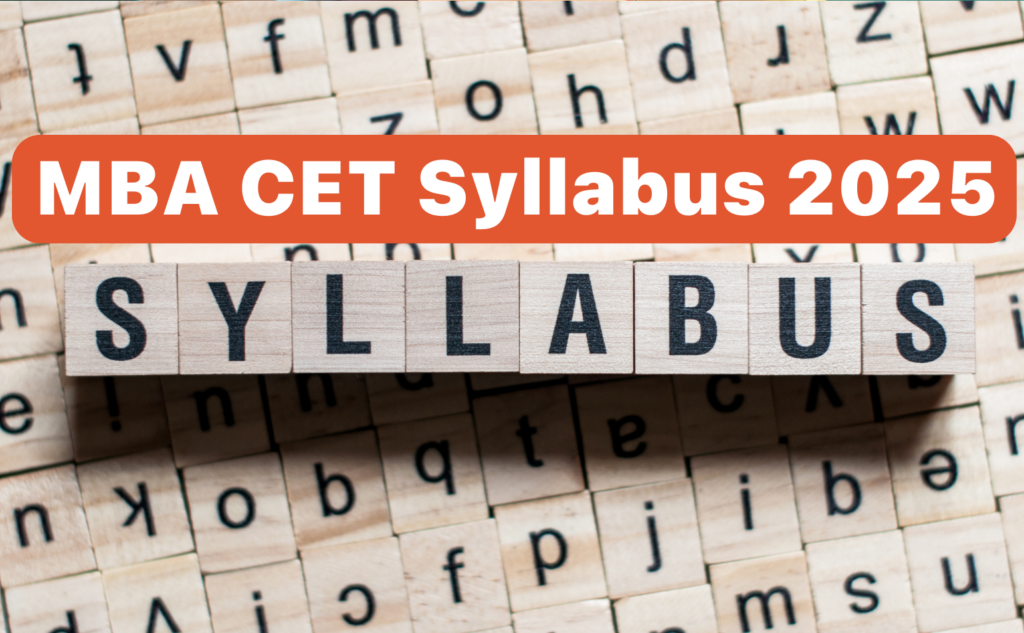Mastering Abstract Reasoning Questions with Examples and Strategies
Abstract reasoning is a key component of the MBA CET 2025 exam, testing your ability to think logically and identify patterns in a variety of shapes, figures, and sequences. The 25 out of 200 total questions are on Abstract Reasoning which challenges candidates to use non-verbal problem-solving skills, making it crucial to practise and understand the different types of questions that may appear in this section.
For instance, you might encounter a question that shows a series of shapes gradually rotating clockwise, and your task is to determine the next shape in the sequence based on the pattern. Mastering these questions can significantly boost your overall score, as they assess critical thinking and decision-making under time constraints.
In this blog, we’ll explore effective abstract reasoning questions for the MBA CET 2025, strategies to tackle them, and tips for enhancing your performance.
“Tarkashastra made my MBA CET registration seamless with their guidance and resources at every step.”
Join our classes today.
Add Your Heading Text Here
What is Abstract Reasoning?
Abstract reasoning refers to the ability to identify patterns, relationships, and logical connections between shapes, symbols, or figures, often without any verbal or numerical context. This type of reasoning challenges candidates to think outside the box and solve problems based purely on the visual information presented to them.
In the context of the MBA CET 2025 exam, all the 25 abstract reasoning questions test your ability to:
- Recognise sequences or progressions in a series of shapes or figures.
- Identify similarities, differences, and relationships between objects.
- Solve problems based on visual patterns, symmetry, and logic.
For example, you may be presented with a sequence of shapes where each shape rotates by a fixed angle, changes size, or alternates its position. Your task is to determine the next shape in the sequence by identifying the underlying rule governing the changes. Abstract reasoning helps assess your ability to solve complex problems, make logical deductions, and think creatively, all of which are essential skills in business and management.
This section of the exam is designed to evaluate your cognitive flexibility and problem-solving abilities, as these skills are critical for decision-making in a dynamic business environment. By honing your abstract reasoning skills, you can improve both your accuracy and speed, allowing you to perform better in this challenging section of the exam.
Which Types of Abstract Reasoning Questions Are There in MBA CET?
In the MAH MBA CET exam, abstract reasoning questions require candidates to identify patterns, logical sequences, and relationships among shapes or figures. Here are the key types of abstract reasoning questions you may encounter:
- Pattern Identification
These questions present a series of shapes or symbols that follow a logical pattern. Your task is to analyse the changes in shape, orientation, or other characteristics to determine the next figure in the sequence.
Example: A sequence of squares where each subsequent square is rotated by 90 degrees clockwise. You need to identify the next rotated position in the sequence. - Series Completion
In these questions, you are given a series of shapes with one missing figure. The goal is to understand how the shapes change progressively and fill in the gap.
Example: A series of triangles, each one decreasing in size and changing its direction by 45 degrees. You must identify the next triangle based on these transformations. - Analogies
Abstract analogies test your ability to find relationships between pairs of shapes. You need to determine the rule or transformation that connects one pair of shapes and apply the same logic to complete the second pair.
Example: A square changes into a rectangle (both figures have four sides but different dimensions), so you must apply a similar change to a circle to find the corresponding figure. - Classification
In classification questions, you must pick out the figure that does not belong in a given set. These questions test your ability to spot differences in a group of similar figures.
Example: Among four shapes, three of them are symmetrical, while one is asymmetrical. Your task is to identify the asymmetrical shape. - Matrix Completion
These questions present a matrix (grid) of shapes where one shape is missing. The candidate must determine the missing figure based on the patterns observed in the rows and columns.
Example: A 3×3 matrix with circles and squares where the pattern alternates between shapes in each row and column. You must identify the missing shape to complete the matrix.
Effective Strategies for Solving Abstract Reasoning Questions in MBA CET 2025
Abstract reasoning questions in the MAH MBA CET 2025 require candidates to think logically and make quick deductions. While these questions may seem complex at first glance, they often follow consistent rules that can be deciphered with the right approach. Here’s how you can effectively solve abstract reasoning questions:
- Start by Observing Simple Changes
Begin by identifying basic patterns, such as the rotation of shapes, increase or decrease in size, or shifts in position. Recognising the most apparent changes can guide you toward the solution quickly.
Tip: If you notice that a figure changes every two steps, predict the next figure based on that cycle. - Look for Multiple Changes
Abstract reasoning questions often involve changes across multiple elements—such as shape, colour, or position. Ensure you consider all aspects when identifying a pattern.
Example: A series of shapes might alternate in both size and orientation. For instance, a triangle could become larger and rotate clockwise with each step. - Utilise Elimination Techniques
When faced with complex questions, use the elimination method. Narrow down your options by eliminating choices that clearly don’t fit the established pattern. This can help when you’re unsure of the final answer but know which choices are unlikely to be correct. - Time Management is Key
Abstract reasoning can be time-consuming, so avoid spending too much time on one question. If you’re stuck, skip the question and return to it later if time permits.
Practice tip: Simulate timed exams at home to develop an efficient pace for tackling abstract reasoning questions under real exam conditions.
What are the Common Mistakes to Avoid in Abstract Reasoning Questions?
While practising abstract reasoning for the MBA CET, candidates tend to make a few common mistakes that can lower their scores. By being aware of these pitfalls, you can significantly improve your performance:
- Overthinking Simple Patterns
One of the most frequent mistakes is overcomplicating questions. Sometimes, the pattern is straightforward, and adding unnecessary complexity can lead you in the wrong direction.
Advice: Start by identifying the most basic pattern. If you don’t find one, then consider more complex relationships. - Missing Out on Key Elements
Abstract reasoning questions often involve changes in multiple aspects. Focusing solely on one element, such as shape, and ignoring others like size or position, can cause you to miss the correct pattern.
Tip: Before selecting an answer, double-check whether you’ve accounted for all visible elements. - Not Reviewing Mistakes After Practice
Many candidates rush through practice questions without reviewing their mistakes. Learning from your errors is crucial for improving your performance.
Solution: After each practice session, spend time going over the questions you got wrong. Try to understand why the correct answer was right and what patterns you missed. - Neglecting Speed Practice
Speed and accuracy are equally important in abstract reasoning. Focusing only on accuracy without practising under timed conditions can result in time shortages during the exam.
Fix: Regularly practise with a timer to simulate real exam conditions and ensure you can work efficiently under pressure.
How to Practise Abstract Reasoning Questions Effectively?
To build confidence and competence in abstract reasoning for the MBA CET 2025, an effective and structured practice routine is essential. Here’s how to practise efficiently:
- Start with Easier Questions to Build Confidence
Begin your preparation by solving easier abstract reasoning questions. This will help build your confidence and familiarity with common question types before moving on to more challenging problems. - Incorporate Timed Practice
Practising without time constraints can lead to complacency. Set a timer for each practice session to simulate real exam conditions and track your progress in managing time. - Use Mock Tests for Comprehensive Preparation
Taking full-length mock tests regularly is crucial. Mock tests replicate the conditions of the actual exam and provide insights into your strengths and weaknesses. - Review and Analyse Mistakes
After completing each mock test or practice session, take time to thoroughly review your mistakes. Identifying recurring errors will allow you to target areas for improvement.
How Mock Tests Can Improve Your Abstract Reasoning Skills?
Taking regular mock tests is one of the most effective methods to improve your abstract reasoning abilities for the MBA CET 2025. Here’s how mock tests can significantly boost your preparation:
- Replicating Real Exam Conditions
Mock tests simulate the actual exam environment, helping you become accustomed to the time pressure and question formats. By practising under timed conditions, you’ll be better prepared for the real test. - Tracking Your Progress
Analysing your performance in mock tests allows you to identify your strengths and weaknesses. Tracking your scores over time gives you a clear picture of your improvement in abstract reasoning. - Refining Time Management
Practising with full-length mock tests improves your ability to manage time effectively during the exam. Abstract reasoning questions can be time-consuming, so refining your speed through mock tests is essential for optimising your performance.
Conclusion
The 25 abstract reasoning questions out of the total 200 question plays a significant role in the MBA CET exam, testing your ability to think critically, recognise patterns, and solve complex problems under time pressure. With consistent practice, effective strategies, and regular use of mock tests, you can significantly improve your performance in this section.
For candidates looking to maximise their preparation for the MBA CET 2025, Tarkashastra offers a comprehensive coaching program tailored specifically for this exam. With expert guidance, a structured curriculum, and access to over 30 full-length mock tests designed to simulate the actual exam environment, Tarkashastra ensures that students build the skills needed to excel.
Remember, mastering abstract reasoning is a skill that develops with time and effort, so remain patient and stay focused on improving your accuracy and speed.
FAQs
-
1. How can I practise abstract reasoning questions effectively for the MBA CET 2025?
Regular practice with timed sessions, mock tests, and a focus on analysing mistakes will help you develop the necessary skills for abstract reasoning.
-
2. What are some common types of abstract reasoning questions on the MBA CET exam?
Common types include pattern identification, series completion, analogies, classification, and matrix completion.
-
3. Are there specific strategies or techniques for solving abstract reasoning questions?
Key strategies include recognising simple patterns, breaking down complex questions, using elimination techniques, and practising time management.
-
4. How can I identify patterns in abstract reasoning questions to improve my performance?
Focus on changes in size, shape, rotation, and position. Regular practice with diverse question types will help you quickly spot recurring patterns.
-
5. What are some common mistakes to avoid when answering abstract reasoning questions?
Avoid overthinking patterns, failing to account for multiple changing elements, and rushing through questions without careful analysis.
-
6. How can solving mock tests help in preparing for abstract reasoning questions?
Mock tests simulate the real exam, help improve speed and accuracy, and provide a way to track your progress and refine your time management strategies.







